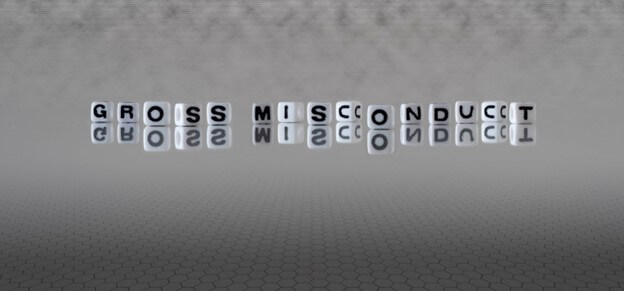The Employment Appeal Tribunal (EAT) has held that there can be circumstances where, when considering misconduct, a separate investigatory and disciplinary hearing isn’t required.
If you want a quick summary of the case and the main takeaway points, you can skip ahead to our Too Long; Didn't Read section here.
Sunshine Hotel v Goddard
The law
Whether a dismissal is fair or unfair is decided under section 98(4) of the Employment Rights Act 1996 (ERA). It will depend on whether you act reasonably by treating an employee’s conduct as sufficient reason for dismissing them.
The landmark case to consider here is British Home Stores v Burchell. The ruling in that case held that a decision to dismiss requires ‘as much investigation into the matter as was reasonable in all circumstances of the case’.
The ACAS Code of Practice on Disciplinary and Grievance Procedures dictates best-practice guidance. You should follow this when conducting a disciplinary procedure as a result of an employee’s potential misconduct.
A full, fair and impartial investigation should be held into the allegation. This may include the holding of an investigation meeting as part of the evidence gathering process. That said, the Code does not state that an investigation meeting always needs to be held.
If you believe there’s enough evidence at the end of the investigation you can begin your disciplinary procedure.
This will involve a separate hearing between the deciding officers, the employee and (if they wish) a representative. You should discuss the misconduct and provide the employee a chance to defend themselves.
The outcome of this hearing could result in a sanction for the employee up to, and including, dismissal. The employee then has the right to appeal against this decision.
Background to the case
The claimant in this case worked night shifts in a hotel, part of which involved patrolling the building.
He was found lying in a bed with the lights off during a night shift. And so, management accused him of sleeping whilst at work. During investigation, they observed the CCTV footage via cameras outside the room where he was found. In the footage, he didn’t leave the room to conduct his patrols for over an hour.
In response, the claimant asserted he had been lying down for around ten minutes prior to being discovered. He stated that he’d had to lie down due to a migraine and had actually conducted his duties.
The claimant was suspended and later invited to an investigation meeting via a letter. The letter outlined that if there was any substance to the allegation, there would be a disciplinary.
However, on attendance at the meeting he was invited to, the claimant was informed that he was actually already at a disciplinary hearing. He was later dismissed.
The claimant appealed the decision. He alleged that he’d left the room through a side door to conduct his duties. He believed this explained why the CCTV had not seen him. However, his appeal was not upheld. He later brought a claim to the employment tribunal (ET) for unfair dismissal.
What did the employment tribunal say?
The tribunal upheld his claim. They were very critical of the investigation that had taken place prior to the dismissal.
There was no investigation meeting. The claimant had been invited to what he thought was one, but it turned out to be a disciplinary hearing.
Calling this a ‘serious procedural failing’, the tribunal asserted that the claimant was denied a ‘basic employment right.’ This was because he hadn’t been provided the opportunity of giving a full explanation prior to a disciplinary.
The employer appealed the decision of the ET. They argued that the wording of the tribunal—in particular making reference to an investigation hearing as a ‘basic employment right’—suggested a separate investigatory hearing and disciplinary hearing is required in every case.
This seemed to be in direct contradiction to the ACAS Code. As a result, the lack of an investigation meeting in this circumstance didn’t render the dismissal unfair.
What did the Employment Appeal Tribunal (EAT) say?
The Employment Appeal Tribunal (EAT) dismissed this appeal.
They found that the dismissal had been unfair and agreed with the reasoning of the tribunal. The investigation was the main reason for finding the dismissal unfair.
However, the EAT did note that there was no requirement for a separate investigation meeting and disciplinary hearing. Neither in section 98 of the ERA, nor the ACAS code.
Failure to hold an investigation meeting doesn’t—on its own—render a dismissal unfair. However, the organisation must have acted reasonably in its investigation and established the facts.
Takeaway points
This case confirms it’s not always necessary to hold an investigatory meeting before proceeding to a disciplinary hearing. However, this will always be very fact specific.
Make sure your disciplinary procedures are in line with the ACAS Code. Follow them whenever faced with an issue of misconduct.
If your procedures include a contractual right to hold investigation meetings, this should be done.
TL;DR
A hotel worker was found lying in bed in a darkened room on his shift. Management accused him of sleeping on the job. He was suspended and invited to an investigation meeting which turned out to be a disciplinary hearing. He was dismissed. He appealed the decision, but the appeal wasn’t upheld. He took his employer to tribunal for unfair dismissal.
The tribunal ruled in favour of the employee as he’d not been given an opportunity to defend himself prior to his disciplinary.
The employer appealed this decision at the EAT. They upheld the tribunal ruling. The employee’s dismissal was unfair. However, the EAT did find that it wasn’t necessary to hold an investigation meeting so long as investigation was reasonable and fair.
If your procedures include a contractual right to hold investigation meetings, this should be done.
Expert Support
Worried how this latest ruling might impact your business? Dealing with a difficult HR situation and not sure where to turn? Speak to a Croner expert today for HR support and guidance on 01455 858 132.
Related resources
Categories
- Business Advice
- Culture & Performance
- Disciplinary & Grievances
- Dismissals & Conduct
- Employee Conduct
- Employment Contracts and Documentation
- Employment Law
- Employment Rights Bill
- End of Contract
- Equality & Discrimination
- Health & Safety
- Hiring and Managing
- Leave & Absence
- Managing Health & Safety
- Moving
- Occupational Health
- Pay & Benefits
- Recruitment
- Risk & Welfare



